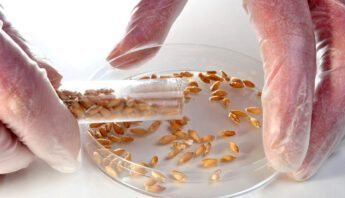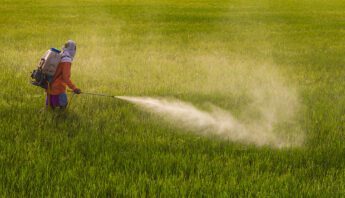
Since the mass introduction of pesticides into food & agriculture following WWII, control over the knowledge needed to grow food has been shifting from farmers to the laboratories of multinational corporations. As a result, scientific research that benefits corporate profit, rather than the public good, has become the norm.
Unfortunately, it is impossible to verify that genetically modified crops perform as advertised. That is because agritech companies have given themselves veto power over the work of independent researchers. – Editors, Scientific American
The importance of science for the public good is difficult to overstate – especially when it comes to feeding our world. When a democracy loses the capacity to transparently research and understand complex problems and solutions, the ability to make sound policy decisions and chart a future for the health and security of a nation is under threat.
Instead of asking, “How can we efficiently grow the most nutritious tomato in a sustainable way?” we ask, “How can we genetically modify a seed that tolerates large doses of my company’s flagship pesticide product?”
Privatizing our Public Universities
Land grant universities were established in the late 1800s by Congress to study agriculture, and for 150 years they supported ground-breaking research. In recent decades 3 developments have undercut our public research system, with particularly devastating effects on food & farming research:
- systematic funding cuts to public educational institutions;
- heavy private investment in universities & in a satellite ring of contract research organizations by companies like Monsanto, Cargill & Dow; and
- changes in U.S. law which allow the patenting of life & privatization of publicly funded research.
The 1980 Bayh-Dole Act joined a series of shifts in patent law in the 1980s to privatize domains previously held in public trust for millennia: seeds and genes. As a result, our capacity for research that safeguards and supports the long-term prosperity of food and agriculture for the public good is on the verge of extinction. When the research agenda is dictated by a handful of pesticide and seed corporations, the scope narrows to include only those technologies which can be patented and profitably brought to market. Alternatives are simply not considered, let alone developed. Entire fields of practice and inquiry – like agroecology – are marginalized.
Science Suppressed & Ignored
 GM crops :: Perhaps nowhere are the risks of this situation more evident than the corporate push for genetically modified (GM) crops. Scientists often shy away from making political statements, but in 2009, scientists from 15+ states told EPA that companies like Monsanto that produce GM seed “inhibit public scientists from pursuing their mandated role on behalf of the public good,” and warned that corporate influence had made independent science on GM technologies impossible.
GM crops :: Perhaps nowhere are the risks of this situation more evident than the corporate push for genetically modified (GM) crops. Scientists often shy away from making political statements, but in 2009, scientists from 15+ states told EPA that companies like Monsanto that produce GM seed “inhibit public scientists from pursuing their mandated role on behalf of the public good,” and warned that corporate influence had made independent science on GM technologies impossible.
Methyl iodide :: In 2007, EPA approved an extraordinarily toxic new fumigant pesticide, methyl iodide, over the objections of 50+ scientists (including 6 Nobel Laureates). The battle then moved to California, where an independent Scientific Review Panel was convened to evaluate the chemical for the state. The panel found that methyl iodide will be "difficult, if not impossible, to control" as an agricultural pesticide, and it's lead scientist called methyl iodide "Without question, one of the most toxic chemicals on earth." California's Department of Pesticide Regulation proposed approval anyway. Both regulatory agencies faced intense lobbying pressure from industry to approve methyl iodide.
IAASTD :: In 2008, the UN- and World Bank-sponsored International Assessement of Agricultural Knowledge, Technology and Development (IAASTD) issued it's findings after 4 years of analysis. 400+ scientists and development experts joined industry and civil society from more than 80 countries in conducting what was and is the most comprehensive analysis of world agriculture to date. Their key finding: "business as usual is not an option" for world agriculture; we should invest in small-scale, agroecological farming if we want to actually feed the world.
In the assessement's final days, as it became clear that corporate-controlled technologies like agricultural biotech were not to be recommended, industry walked out in a huff. The agbiotech industry subsequently attacked and then attemtpted to bury the IAASTD. In the U.S., they have been largely successful.
For all these reasons and more, PAN insists on the use of transparent, independent science in government policy-making. We expose and translate corporate science, making information accessible and its sources visible. In our advocacy, we work alongside communities on the ground to develop data, analyses and power. Firmly rooted in a grassroots science approach, we advocate for policies that drive investment in research needed to support food and agriculture for a thriving democracy and growing world.







